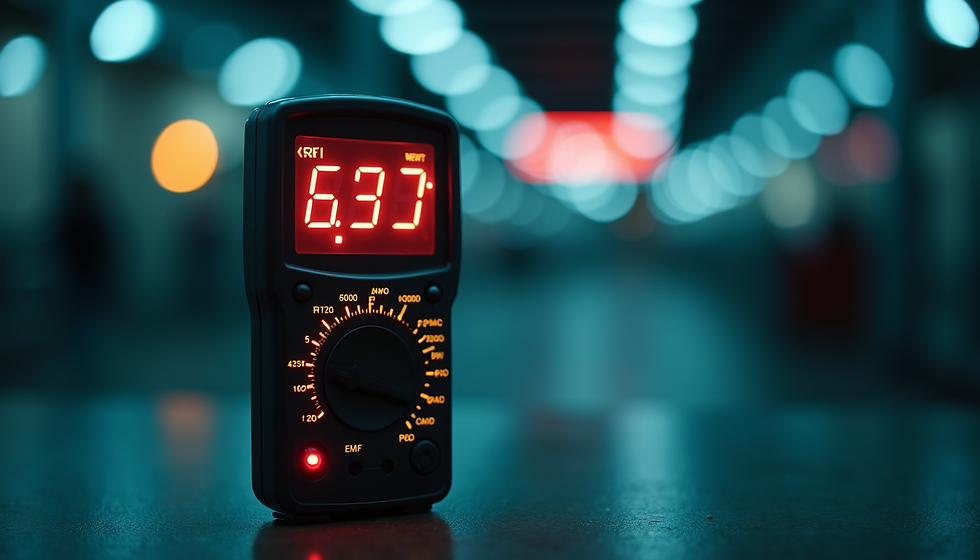Exploring the Line Between Paranormal Occurrences and Natural Phenomena
- Mitch71

- Jun 23
- 3 min read
Understanding the boundary between paranormal occurrences and natural phenomena has captivated human curiosity for centuries. We are often drawn to events that challenge our understanding of the world. When experiences defy explanation, we instinctively question their origins. This exploration aims to clarify what separates these phenomena, offering valuable insights into both categories while fostering critical thinking.
What are Paranormal Occurrences?
Paranormal occurrences refer to events or experiences that cannot be explained by natural laws or science. These encounters often involve ghosts, hauntings, unexplained sounds, or sightings of unidentified flying objects (UFOs). For instance, many people report seeing shadows in the corner of their eyes, claiming these are manifestations of spirits. Despite a wealth of personal stories, these experiences generally lack empirical evidence or scientific validation.
Consider the famous case of the Enfield Poltergeist in England, where a family reported strange noises and objects being thrown in their home. While the events sparked widespread interest, independent investigations failed to establish concrete evidence, showcasing the elusive nature of paranormal claims.
The Nature of Natural Phenomena
Natural phenomena, conversely, comprise observable events that science can explain. These include weather events such as tornadoes and rainbows, as well as astronomical phenomena like solar eclipses. Such occurrences rely on reproducible evidence and scientific methodology.
For example, ball lightning is a natural phenomenon that, despite its mysterious reputation, has been researched extensively by scientists. According to the journal Physics Today, about 10% of people who report witnessing it describe diverse characteristics, from glowing spheres to sudden bursts of light during thunderstorms. Unlike paranormal events, scientists can analyze factors like electrical fields and atmospheric conditions to build a clearer understanding of ball lightning.
The Common Ground
Both paranormal and natural phenomena tap into human curiosity. However, the key difference lies in the ability to verify experiences through scientific methods in natural phenomena. Paranormal occurrences often rely heavily on personal anecdotes and subjective interpretations.
For example, a person who believes they have encountered a ghost may provide vivid descriptions of their experience, but these accounts lack measurable data. In contrast, a thunderstorm can be monitored and predicted using radar technology, and meteorologists can provide a detailed analysis of its formation.
Cultural Context and Beliefs
Cultural background significantly influences how people interpret both paranormal and natural phenomena. For example, while a lunar eclipse might be viewed scientifically in one culture, others may see it as a harbinger of change or disaster. This variance is evident in the Mayan civilization, which had elaborate rituals surrounding solar and lunar eclipses, believing they signaled important events.
Moreover, the human mind tends to seek patterns, sometimes leading to misinterpretations. A simple breeze can be perceived as a ghostly whisper when one is alone in a dark room. A 2020 study from the University of California found that 70% of individuals report feeling uneasy in dimly lit spaces, often attributing their discomfort to supernatural influences rather than environmental factors.
Skepticism vs. Belief
Skepticism plays a crucial role in understanding both paranormal and natural phenomena. Many individuals approach these topics with a critical mindset, applying scientific reasoning to discern fact from fiction. This critical lens often reveals plausible explanations that were previously ignored.
However, belief in the paranormal remains strong. According to a Gallup poll, approximately 37% of Americans believe in ghosts, and this number has remained stable over the years. The divide between skeptics and believers reflects diverse perspectives on reality and imagination, inviting rich conversations about what we consider true experiences.
The Role of Science and Technology
Thanks to advancements in science and technology, many occurrences previously deemed paranormal can now be explained. For example, infrared cameras and sound recorders used in investigations have helped capture data that either supports or dispels haunting claims. The rates of successful data capture have improved by over 30% since the introduction of mobile technology in this field.
However, science does not always encompass subjective experiences, allowing the paranormal to thrive in areas yet unstudied. Additionally, social media has fostered communities where individuals freely share their experiences, creating both camaraderie and the potential for misinformation to spread. This blend of community and skepticism complicates our understanding of what might be real versus fictional.
Final Thoughts
Examining paranormal occurrences alongside natural phenomena raises important questions about reality and human experience. While both categories hold elements of mystery, they vary in verifiability and scientific explanation.
Engaging in discussions about these topics can enhance our appreciation for the natural world while acknowledging the rich array of human beliefs and experiences. Whether one leans toward skepticism or belief, the conversation invites continuous curiosity and wonder regarding the phenomena that shape our existence.







Comments